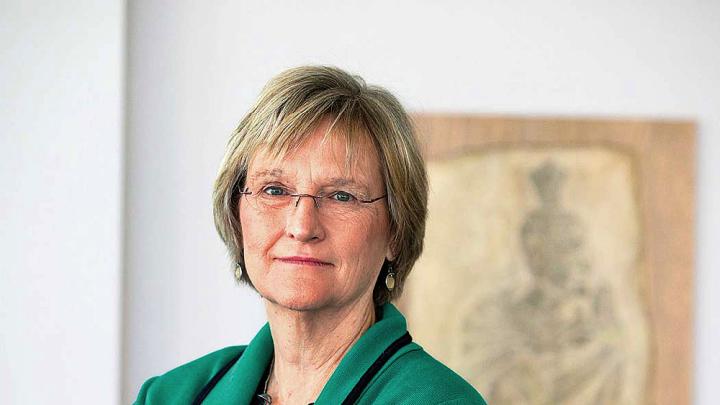In November, I had the distinct privilege of addressing some 600 Harvard alumni at the Smithsonian Institution’s National Museum of African American History and Culture. The event—the sixteenth in the Harvard Campaign’s “Your Harvard” series that has taken me from Boston to Berlin to Dallas to Singapore, and concludes in February in San Francisco—included remarks from a personal hero of mine, Congressman John Lewis, LL.D. ’12, who in many ways willed the museum into existence with his lifetime commitment to civil rights and remembrance in America. A panel of Harvard faculty explored the evening’s theme: education as the civil-rights issue of our time.
The museum was the perfect backdrop for this conversation. Its exhibition halls surround visitors with testaments to the liberating power of learning and the hard-fought struggle by African slaves and their offspring to gain access to education: the tattered bible that Nat Turner carried into a slave rebellion, prompting laws that made it a crime to teach enslaved persons to read; the hymnal Harriet Tubman cherished, though it is believed she could neither read nor write; the Celtics jersey of basketball legend Bill Russell, LL.D. ’07, whose most prized childhood possession was his library card to the Oakland Public Library.
Frederick Douglass once wrote, “Some men know the value of education by having it. I know its value by not having it.” Education liberates the mind, even when the body is oppressed. It gives us perspective as a passport to other times, other places, and other points of view, as well as a way to learn about ourselves and to re-imagine our lives in ways that alter us forever.
More than sixty years after the Brown v. Board of Education decision, access to education is still not equal. I remember listening to that decision announced on the radio when I was seven—I glimpsed then the aspiration toward justice through education that would come to shape my life.
Beginning with its first scholarships in 1643, Harvard has gradually opened its community to one individual and one group after another—widening its gates through financial aid, through its invention of merit-based testing and its merger with Radcliffe, through outreach and advocacy for first-generation, low-income, and undocumented applicants—all in an effort to attract students of talent and promise from every background, across the United States and across the world.
Throughout our history, these efforts have advanced educational attainment at Harvard. Today, 15 percent of our students are the first in their family to attend college, and more than half of Harvard College students receive need-based financial aid. More than 20 percent of students’ families are not expected to contribute to costs associated with tuition or room and board for their child’s education, and we make sure every graduate of the College can leave without taking on debt.
Advancing the critical role of education in promoting service, achieving social justice, and widening opportunity is fundamental to Harvard and the heart of the Campaign we launched in 2013. Now more than ever these efforts are essential. In a nation where violence and threats are increasingly replacing rational discourse and exchange, we must champion equal access to education and foster discourse where facts and truth matter.
The National Museum of African American History and Culture powerfully reminds us that education and freedom are inseparably intertwined. The hope and reality of what education can unlock make it incumbent on us to redouble our efforts to open the gates, and close the gap.








